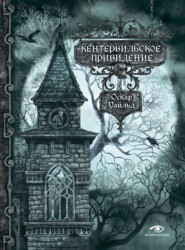По всем вопросам обращайтесь на: info@litportal.ru
(©) 2003-2024.
✖
Children in Prison and Other Cruelties of Prison Life
Настройки чтения
Размер шрифта
Высота строк
Поля
Oscar Wilde
Oscar Wilde
Children in Prison and Other Cruelties of Prison Life
PUBLISHERS' NOTE
The circumstance which called forth this letter is a woeful one for Christian England. Martin, the Reading warder, is found guilty of feeding the hungry, nursing the sick, of being kindly and humane. These are his offences in plain unofficial language.
This pamphlet is tendered to earnest persons as evidence that the prison system is opposed to all that is kind and helpful. Herein is shown a process that is dehumanizing, not only to the prisoners, but to every one connected with it.
Martin was dismissed. It happened in May last year. He is still out of employment and in poor circumstances. Can anyone help him?
February, 1898.
SOME CRUELTIES OF PRISON LIFE
THE EDITOR OF THE DAILY CHRONICLE
Sir, – I learn with great regret, through an extract from the columns of your paper, that the warder Martin, of Reading Prison, has been dismissed by the Prison Commissioners for having given some sweet biscuits to a little hungry child. I saw the three children myself on the Monday preceding my release. They had just been convicted, and were standing in a row in the central hall in their prison dress, carrying their sheets under the arms previous to their being sent to the cells allotted to them. I happened to be passing along one of the galleries on my way to the reception room, where I was to have an interview with a friend. They were quite small children, the youngest – the one to whom the warder gave the biscuits – being a tiny little chap, for whom they had evidently been unable to find clothes small enough to fit. I had, of course, seen many children in prison during the two years during which I was myself confined. Wandsworth Prison, especially, contained always a large number of children. But the little child I saw on the afternoon of Monday, the 17th, at Reading, was tinier than any one of them. I need not say how utterly distressed I was to see these children at Reading, for I knew the treatment in store for them. The cruelty that is practised by day and night on children in English prisons is incredible, except to those who have witnessed it and are aware of the brutality of the system.
People nowadays do not understand what cruelty is. They regard it as a sort of terrible mediæval passion, and connect it with the race of men like Eccelin da Romano, and others, to whom the deliberate infliction of pain gave a real madness of pleasure. But men of the stamp of Eccelin are merely abnormal types of perverted individualism. Ordinary cruelty is simply stupidity. It comes from the entire want of imagination. It is the result in our days of stereotyped systems, of hard-and-fast rules, of centralisation, of officialism, and of irresponsible authority. Wherever there is centralisation there is stupidity. What is inhuman in modern life is officialism. Authority is as destructive to those who exercise it as it is to those on whom it is exercised. It is the Prison Board, with the system that it carries out, that is the primary source of the cruelty that is exercised on a child in prison. The people who uphold the system have excellent intentions. Those who carry it out are humane in intention also. Responsibility is shifted on to the disciplinary regulations. It is supposed that because a thing is the rule it is right.
The present treatment of children is terrible, primarily from people not understanding the peculiar psychology of a child's nature. A child can understand a punishment inflicted by an individual, such as a parent or guardian, and bear it with a certain amount of acquiescence. What it cannot understand is a punishment inflicted by Society. It cannot realise what Society is. With grown people it is, of course, the reverse. Those of us who are either in prison or have been sent there, can understand, and do understand, what that collective force called Society means, and whatever we may think of its methods or claims, we can force ourselves to accept it. Punishment inflicted on us by an individual, on the other hand, is a thing that no grown person endures or is expected to endure.
The child consequently, being taken away from its parents by people whom it has never seen, and of whom it knows nothing, and finding itself in a lonely and unfamiliar cell, waited on by strange faces, and ordered about and punished by the representatives of a system that it cannot understand, becomes an immediate prey to the first and most prominent emotion produced by modern prison life – the emotion of terror. The terror of a child in prison is quite limitless. I remember once in Reading, as I was going out to exercise, seeing in the dimly-lit cell, right opposite my own, a small boy. Two warders, not unkindly men, were talking to him, with some sternness apparently, or perhaps giving him some useful advice about his conduct. One was in the cell with him, the other was standing outside. The child's face was like a white wedge of sheer terror. There was in his eyes the mute appeal of a hunted animal. The next morning I heard him at breakfast-time crying, and calling to be let out. His cry was for his parents. From time to time I could hear the deep voice of the warder on duty warning him to keep quiet. Yet he was not even convicted of whatever little offence he had been charged with. He was simply on remand. That I knew by his wearing his own clothes, which seemed neat enough. He was, however, wearing prison socks and shoes. This showed that he was a very poor boy, whose own shoes, if he had any, were in a bad state. Justices and magistrates, an entirely ignorant class as a rule, often remand children for a week, and then perhaps remit whatever sentence they are entitled to pass. They call this "not sending a child to prison." It is, of course, a stupid view on their part. To a little child, whether he is in prison on remand or after conviction, is a subtlety of social position he cannot comprehend. To him the horrible thing is to be there at all. In the eyes of humanity it should be a horrible thing for him to be there at all.
This terror that seizes and dominates the child, as it seizes the grown man also, is of course intensified beyond power of expression by the solitary cellular system of our prisons. Every child is confined to its cell for twenty-three hours out of the twenty-four. This is the appalling thing. To shut up a child in a dimly-lit cell for twenty-three hours out of the twenty-four is an example of the cruelty of stupidity. If an individual, parent or guardian, did this to a child he would be severely punished. The Society for the Prevention of Cruelty to Children would take the matter up at once. There would be on all hands the utmost detestation of whomsoever had been guilty of such cruelty. A heavy sentence would undoubtedly follow conviction. But our own actual society does worse itself, and to the child to be so treated by a strange abstract force, of whose claims it has no cognizance, is much worse than it would be to receive the same treatment from its father or mother, or someone it knew. The inhuman treatment of a child is always inhuman, by whomsoever it is inflicted. But inhuman treatment by Society is to the child the more terrible because there is no appeal. A parent or guardian can be moved, and let out the child from the dark lonely room in which it is confined. But a warder cannot. Most warders are very fond of children. But the system prohibits them from rendering the child any assistance. Should they do so, as Warder Martin did, they are dismissed.
The second thing from which a child suffers in prison is hunger. The food that is given to it consists of a piece of usually badly-baked prison bread and a tin of water for breakfast at half-past seven. At twelve o'clock it gets dinner, composed of a tin of coarse Indian meal stirabout, and at half-past five it gets a piece of dry bread and a tin of water for its supper. This diet in the case of a strong grown man is always productive of illness of some kind, chiefly of course diarrhœa, with its attendant weakness. In fact in a big prison astringent medicines are served out regularly by the warders as a matter of course. In the case of a child, the child is, as a rule, incapable of eating the food at all. Anyone who knows anything about children knows how easily a child's digestion is upset by a fit of crying, or trouble and mental distress of any kind. A child who has been crying all day long, and perhaps half the night, in a lonely dimly-lit cell, and is preyed upon by terror, simply cannot eat food of this coarse, horrible kind. In the case of the little child to whom Warder Martin gave the biscuits, the child was crying with hunger on Tuesday morning, and utterly unable to eat the bread and water served to it for its breakfast. Martin went out after the breakfasts had been served and bought the few sweet biscuits for the child rather than see it starving. It was a beautiful action on his part, and was so recognised by the child, who, utterly unconscious of the regulation of the Prison Board, told one of the senior warders how kind this junior warder had been to him. The result was, of course, a report and a dismissal.
I know Martin extremely well, and I was under his charge for the last seven weeks of my imprisonment. On his appointment at Reading he had charge of Gallery C, in which I was confined, so I saw him constantly. I was struck by the singular kindness and humanity of the way in which he spoke to me and to the other prisoners. Kind words are much in prison, and a pleasant "Good morning" or "Good evening" will make one as happy as one can be in solitary confinement. He was always gentle and considerate. I happen to know another case in which he showed great kindness to one of the prisoners, and I have no hesitation in mentioning it. One of the most horrible things in prison is the badness of the sanitary arrangements. No prisoner is allowed under any circumstances to leave his cell after half-past five p.m. If, consequently, he is suffering from diarrhœa, he has to use his cell as a latrine, and pass the night in a most fetid and unwholesome atmosphere. Some days before my release Martin was going the rounds at half-past seven with one of the senior warders for the purpose of collecting the oakum and tools of the prisoners. A man just convicted, and suffering from violent diarrhœa in consequence of the food, as is always the case, asked this senior warder to allow him to empty the slops in his cell on account of the horrible odour of the cell and the possibility of illness again in the night. The senior warder refused absolutely; it was against the rules. The man, as far as he was concerned, had to pass the night in this dreadful condition. Martin, however, rather than see this wretched man in such a loathsome predicament, said he would empty the man's slops himself, and did so. A warder emptying a prisoner's slops is, of course, against the rules, but Martin did this act of kindness to the man out of the simple humanity of his nature, and the man was naturally most grateful.
As regards the children, a great deal has been talked and written lately about the contaminating influence of prison on young children. What is said is quite true. A child is utterly contaminated by prison life. But the contaminating influence is not that of the prisoners. It is that of the whole prison system – of the governor, the chaplain, the warders, the lonely cell, the isolation, the revolting food, the rules of the Prison Commissioners, the mode of discipline as it is termed, of the life. Every care is taken to isolate a child from the sight even of all prisoners over sixteen years of age. Children sit behind a curtain in chapel, and are sent to take exercise in small sunless yards – sometimes a stone-yard, sometimes a yard at the back of the mills – rather than that they should see the elder prisoners at exercise. But the only really humanising influence in prison is the influence of the prisoners. Their cheerfulness under terrible circumstances, their sympathy for each other, their humility, their gentleness, their pleasant smiles of greeting when they meet each other, their complete acquiescence in their punishments, are all quite wonderful, and I myself learnt many sound lessons from them. I am not proposing that the children should not sit behind a curtain in chapel, or that they should take exercise in a corner of the common yard. I am merely pointing out that the bad influence on children is not, and could never be, that of the prisoners, but is, and will always remain, that of the prison system itself. There is not a single man in Reading Gaol that would not gladly have done the three children's punishment for them. When I saw them last it was on the Tuesday following their conviction. I was taking exercise at half-past eleven with about twelve other men, as the three children passed near us, in charge of a warder, from the damp, dreary stone-yard in which they had been at their exercise. I saw the greatest pity and sympathy in the eyes of my companions as they looked at them. Prisoners are, as a class, extremely kind and sympathetic to each other. Suffering and the community of suffering makes people kind, and day after day as I tramped the yard I used to feel with pleasure and comfort what Carlyle calls somewhere "the silent rhythmic charm of human companionship." In this as in all other things, philanthropists and people of that kind are astray. It is not the prisoners who need reformation. It is the prisons.
Of course no child under fourteen years of age should be sent to prison at all. It is an absurdity, and, like many absurdities, of absolutely tragic results. If, however, they are to be sent to prison, during the daytime they should be in a workshop or schoolroom with a warder. At night they should sleep in a dormitory, with a night-warder to look after them. They should be allowed exercise for at least three hours a day. The dark, badly-ventilated, ill-smelling prison cells are dreadful for a child, dreadful indeed for anyone. One is always breathing bad air in prison. The food given to children should consist of tea and bread-and-butter and soup. Prison soup is very good and wholesome. A resolution of the House of Commons could settle the treatment of children in half an hour. I hope you will use your influence to have this done. The way that children are treated at present is really an outrage on humanity and common-sense. It comes from stupidity.
Let me draw attention now to another terrible thing that goes on in English prisons, indeed in prisons all over the world where the system of silence and cellular confinement is practised. I refer to the large number of men who become insane or weak-minded in prison. In convict prisons this is, of course, quite common; but in ordinary gaols also, such as that I was confined in, it is to be found.
About three months ago, I noticed amongst the prisoners who took exercise with me a young man who seemed to me to be silly or half-witted. Every prison of course has its half-witted clients, who return again and again, and may be said to live in the prison. But this young man struck me as being more than usually half-witted on account of his silly grin and idiotic laughter to himself, and the peculiar restlessness of his eternally twitching hands. He was noticed by all the other prisoners on account of the strangeness of his conduct. From time to time he did not appear at exercise, which showed me that he was being punished by confinement to his cell. Finally, I discovered that he was under observation, and being watched night and day by warders. When he did appear at exercise, he always seemed hysterical, and used to walk round crying or laughing. At chapel he had to sit right under the observation of two warders, who carefully watched him all the time. Sometimes he would bury his head in his hands, an offence against the chapel regulations, and his head would be immediately struck up by a warder, so that he should keep his eyes fixed permanently in the direction of the Communion-table. Sometimes he would cry – not making any disturbance – but with tears streaming down his face and a hysterical throbbing in the throat. Sometimes he would grin idiot-like to himself and make faces. He was on more than one occasion sent out of chapel to his cell, and of course he was continually punished. As the bench on which I used to sit in chapel was directly behind the bench at the end of which this unfortunate man was placed, I had full opportunity of observing him. I also saw him, of course, at exercise continually, and I saw that he was becoming insane, and was being treated as if he was shamming.
On Saturday week last, I was in my cell at about one o'clock occupied in cleaning and polishing the tins I had been using for dinner. Suddenly I was startled by the prison silence being broken by the most horrible and revolting shrieks or rather howls, for at first I thought some animal like a bull or a cow was being unskilfully slaughtered outside the prison walls. I soon realised, however, that the howls proceeded from the basement of the prison, and I knew that some wretched man was being flogged. I need not say how hideous and terrible it was for me, and I began to wonder who it was who was being punished in this revolting manner. Suddenly it dawned upon me that they might be flogging this unfortunate lunatic. My feelings on the subject need not be chronicled; they have nothing to do with the question.
The next day, Sunday 16th, I saw the poor fellow at exercise, his weak, ugly, wretched face bloated by tears and hysteria almost beyond recognition. He walked in the centre ring along with the old men, the beggars and the lame people, so that I was able to observe him the whole time. It was my last Sunday in prison, a perfectly lovely day, the finest day we had had the whole year, and there, in the beautiful sunlight, walked this poor creature – made once in the image of God – grinning like an ape, and making with his hands the most fantastic gestures, as though he was playing in the air on some invisible stringed instrument, or arranging and dealing counters in some curious game. All the while these hysterical tears, without which none of us ever saw him, were making soiled runnels on his white swollen face. The hideous and deliberate grace of his gestures made him like an antic. He was a living grotesque. The other prisoners all watched him, and not one of them smiled. Everybody knew what had happened to him, and that he was being driven insane – was insane already. After half-an-hour, he was ordered in by the warder, and, I suppose, punished. At least he was not at exercise on Monday, though I think I caught sight of him at the corner of the stone-yard, walking in charge of a warder.
On the Tuesday – my last day in prison – I saw him at exercise. He was worse than before, and again was sent in. Since then I know nothing of him, but I found out from one of the prisoners who walked with me at exercise that he had had twenty-four lashes in the cook-house on Saturday afternoon, by order of the visiting justices on the report of the doctor. The howls that had horrified us all were his.
This man is undoubtedly becoming insane. Prison doctors have no knowledge of mental disease of any kind. They are as a class ignorant men. The pathology of the mind is unknown to them. When a man grows insane, they treat him as shamming. They have him punished again and again. Naturally the man becomes worse. When ordinary punishments are exhausted, the doctor reports the case to the justices. The result is flogging. Of course the flogging is not done with a cat-of-nine-tails. It is what is called birching. The instrument is a rod; but the result on the wretched half-witted man may be imagined.
His number is, or was, A. 2. 11. I also managed to find out his name. It is Prince. Something should be done at once for him. He is a soldier, and his sentence is one of court-martial. The term is six months. Three have yet to run.
May I ask you to use your influence to have this case examined into, and to see that the lunatic prisoner is properly treated?
No report by the Medical Commissioners is of any avail. It is not to be trusted. The medical inspectors do not seem to understand the difference between idiocy and lunacy – between the entire absence of a function or organ and the diseases of a function or organ. This man A. 2. 11, will, I have no doubt, be able to tell his name, the nature of his offence, the day of the month, the date of the beginning and expiration of his sentence, and answer any ordinary simple question; but that his mind is diseased admits of no doubt. At present it is a horrible duel between himself and the doctor. The doctor is fighting for a theory. The man is fighting for his life. I am anxious that the man should win. But let the whole case be examined into by experts who understand brain-disease, and by people of humane feelings who have still some common-sense and some pity. There is no reason that the sentimentalist should be asked to interfere. He always does harm. He culminates at his starting point. His end, as his origin, is an emotion.
The case is a special instance of the cruelty inseparable from a stupid system, for the present Governor of Reading is a man of gentle and humane character, greatly liked and respected by all the prisoners. He was appointed in July last, and though he cannot alter the rules of the prison system, he has altered the spirit in which they used to be carried out under his predecessor. He is very popular with the prisoners and with the warders. Indeed he has quite elevated the whole tone of the prison-life. Upon the other hand, the system is of course beyond his reach as far as altering its rules is concerned. I have no doubt that he sees daily much of what he knows to be unjust, stupid, and cruel. But his hands are tied. Of course I have no knowledge of his real views of the case of A. 2. 11, nor, indeed, of any of his views on our present system. I merely judge him by the complete change he brought about in Reading Prison. Under his predecessor the system was carried out with the greatest harshness and stupidity. – I remain, Sir, your obedient servant,
OSCAR WILDE.
France, May 27th, 1897.

















